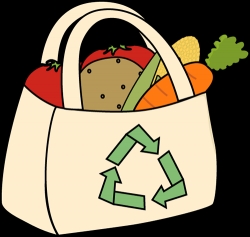Europe and national governments are keen for us as nations to progress towards (or beyond) the targets set in the Europe 2020 strategy. Whilst it is accepted that our individual or household behaviours have a substantial impact on the environment it can be difficult for us to relate personal consumption and behaviour to large-scale problems such as climate change, pollution, biodiversity loss and natural resource depletion. Irrespective of environmental concerns, they do not necessarily result in “green” behaviour.
How to translate environmental concerns into green behaviour? Governments or employers can support us to carry out actions that may strengthen the protection and sustainability of our environment and economy. Indeed sometimes authorities provide incentives to help us make changes – replacing an old inefficient boiler, insulating our walls and roofs etc. Sometimes there are small changes that we can make ourselves and with our families that collectively have a great impact.
I found a list of tips and tricks for making our behaviour more sustainable on Population Matters. It seems that those tips and tricks would have little adverse impact on our lives. Moreover, many of the cases of sustainable innovation in Casipedia are innovations that may enable us to change our behaviour.
Travel
When you drive remember most cars are more fuel efficient at 40-60mph than at 70mph. You could plan your journeys to use the most efficient means of travel – can you walk, cycle, use the bus or train rather than driving you own car? Perhaps there is a local initiative to share a car. Or even working from home one day per week reduces the impact on the environment.
Leisure
Choose pastimes/hobbies that don’t require large amounts of fuel, electricity or material resources and consider holidaying nearer to home, to reduce demand for air travel in particular.
At home
Use a low water flush WC and avoid unnecessarily deep or frequent baths, if possible take showers as these generally use less water and heat than baths, the exception being power showers due to their high flow-rate. Such showers may use more water than a bath - depending on the duration of your shower! For temperature comfort at home reduce draughts and set the heating thermostats to the minimum comfortable temperature, bear in mind wearing a jumper in cooler temperatures will allow the heating to be set lower than if you are wearing a tee shirt. You can also reduce electricity consumption by turning off lights when you don’t need them on, using low energy bulbs and by turning off and unplugging appliances when you are not using them – don’t’ just put them on “standby”. Use natural ventilation rather than air conditioning whenever possible. Moving into the kitchen – when cooking or making hot drinks do not heat or boil more water than necessary; buy seasonal locally produced food when you can. Don’t forget to reuse carrier bags and other containers rather than obtaining new ones when you go shopping.
When viable - repair rather than replace items but when you do have to make a new purchase, particularly when considering an appliance that uses water or energy, look for efficient models. Be aware though that the environmental cost of manufacturing an item may outweigh any reduction in the environmental impact when in use; also some efficient devices may have so much energy ‘embedded’ in their manufacture that overall it may be better to use a simpler model.
Gardening
A good tip generally but particularly when a hose pipe ban is in place - use water efficient techniques for garden watering, a water butt is a very cheap and effective way to recycle rain water for example.
Perhaps you could explain the importance of sustainability to your family and friends. By no means is the above an exhaustive list, for the most part it merely presents smallish changes many of us can make quite simply to our lives. So make a change today! Perhaps you can suggest further changes people can make in their homes or lives? Can you suggest local cases of sustainable innovations that you have come across? If you can please do leave a comment on this post.
Relevant themes:
Public participation, Sustainable innovation, Environment
Relevant tags: Sustainability, Eco-innovation, Sustainable lifestyles
























